6 truly wild ways chimpanzees are more like us than you might think
Paying tribute to our fuzzy cousins on World Chimpanzee Day
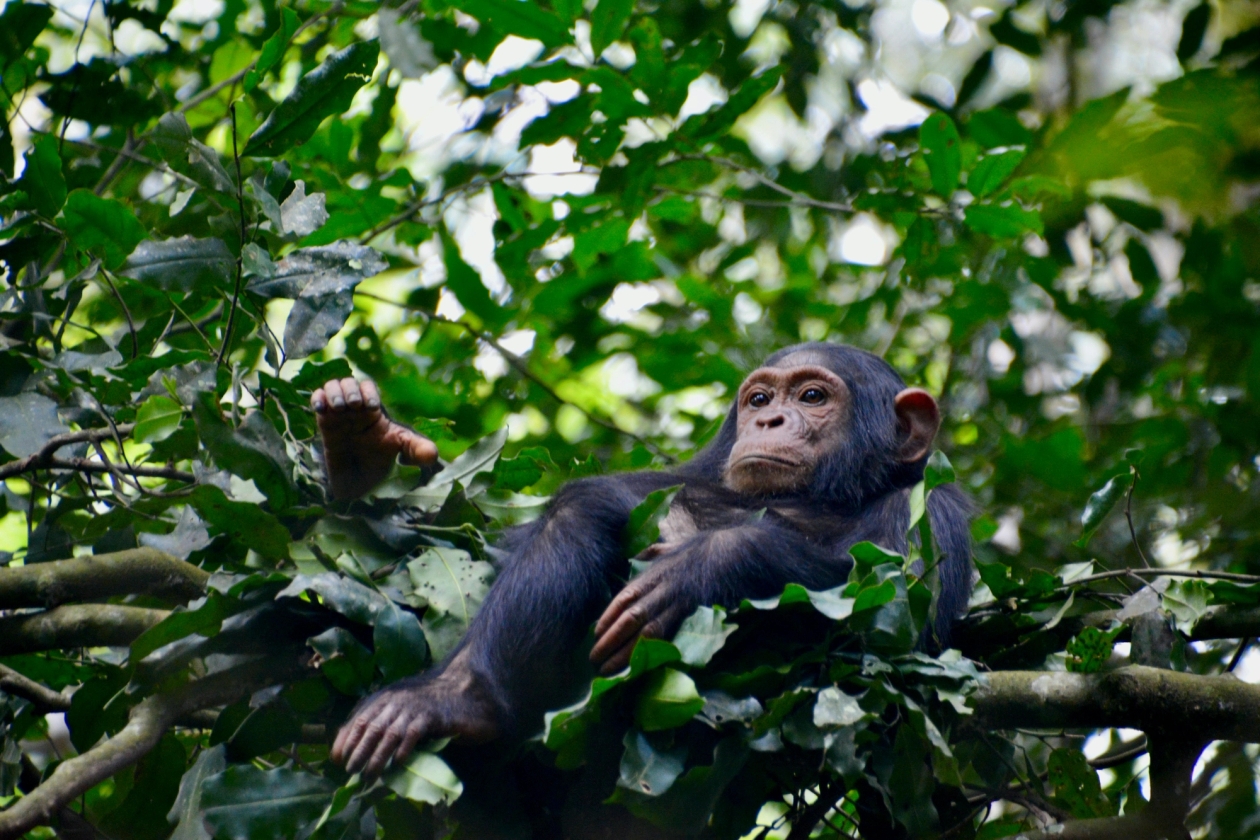
Did you know that chimpanzees share about 98.7% of their DNA with humans? That makes them our closest relatives in the animal kingdom – closer than gorillas or orangutans! This World Chimpanzee Day, we’re taking a closer look at just how human chimps really are, and what that means for them.
Chimpanzees aren’t just clever animals, they remarkably like us in how they think, feel, and live. Let’s take a look at some of those amazing similarities:
1. Smart thinkers
Chimpanzees can solve puzzles, remember patterns, and even plan ahead. In some studies, chimps have outperformed humans in short-term memory games!
Chimpanzees are omnivores, this means that they can eat meat and/or plants to survive. Will you be able to remember this fact at the end of the post?
2. Tool users
Chimpanzees, bonobos and other monkeys have been seen using tools in the wild, something once thought to be a “human only” skill. They can::
- Modify sticks to gather termites. They run the stick through their mouths, causing the end to fray. This long, thin, brush-like tool is perfect for plunging into termite mounds for a quick snack.
(photo below credit Mike Richey)
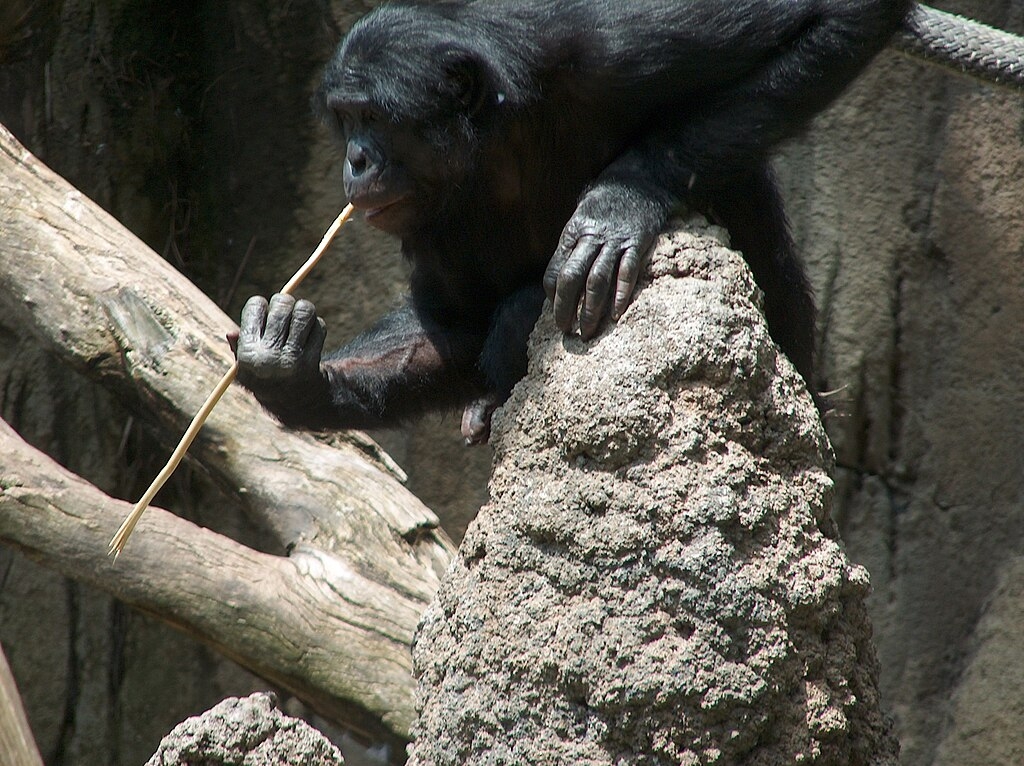
- Use stones to crack open hard nuts. They place the nut on a flat rock, then smash it with another stone to get the snack inside. It’s a bit like when we use kitchen tools to crush spices or seeds!
- Turning leaves into water cups. It varies from group to group, but chimpanzees have perfected the art of turning a leaf into a cup or scoop to drink water. Some chew leaves and moss to make a sponge, to soak up water, and suck the liquid from it.
It’s basically a chimp DIY tool kit!
3. Emotional creatures
Chimps laugh when they play, hug when they’re scared, and can grow sad when someone leaves. They even have “best friends” who they spend most of their time with.
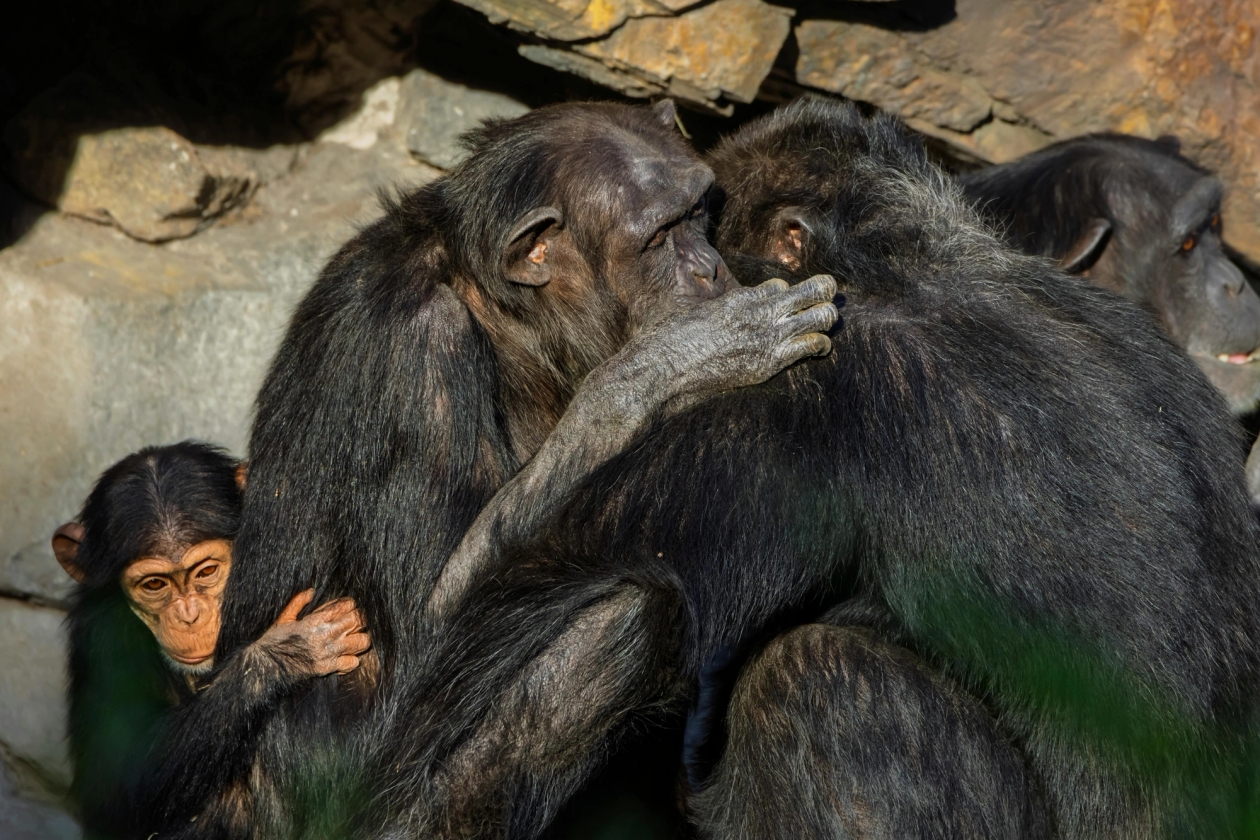
4. Family first
Just like us, baby chimps stay close to their mothers for years. They learn by copying, watching, and practicing – the same way we learn to tie our shoes, or ride a bike
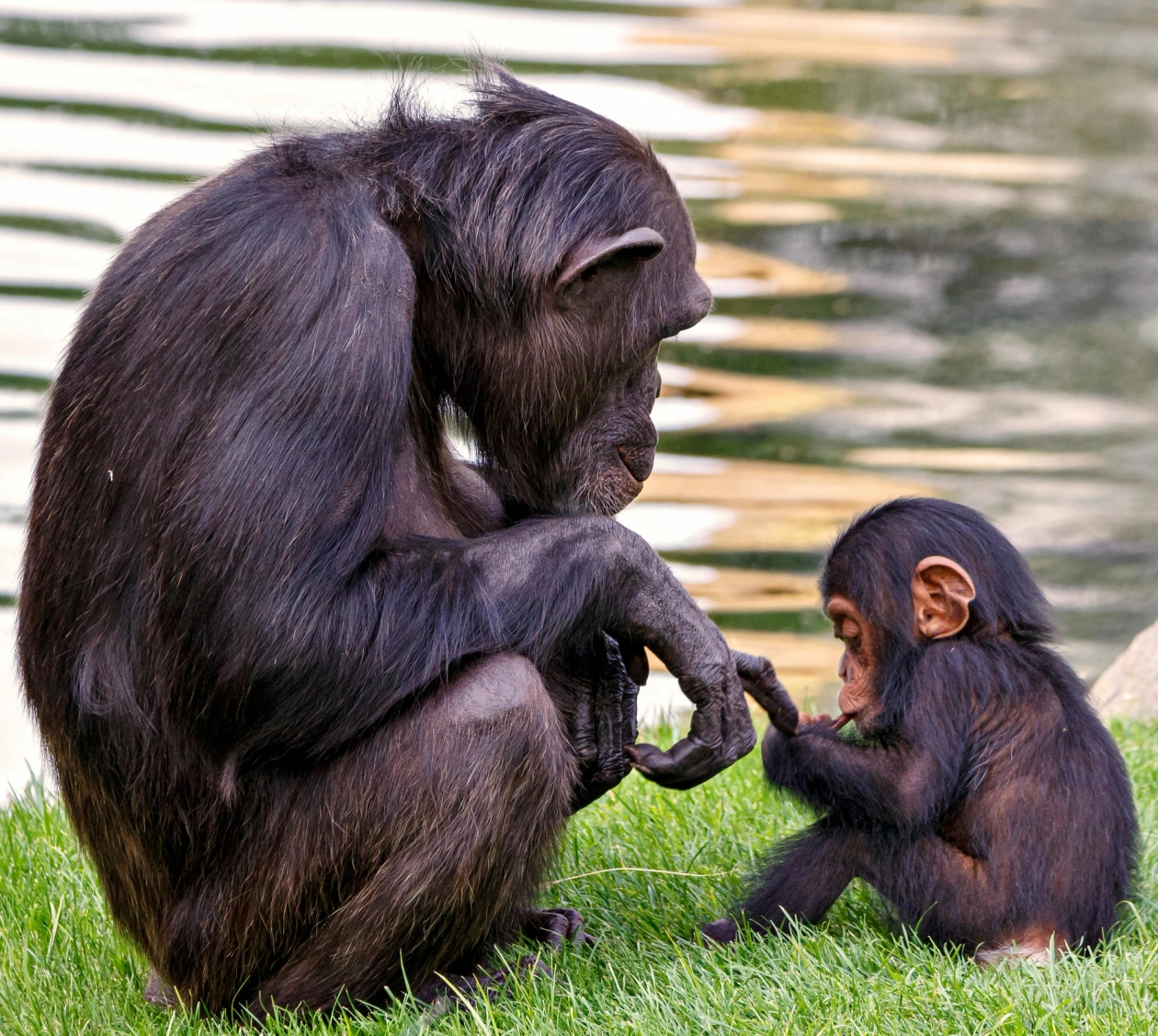
5. Silent language
Chimps don’t speak, but they can talk to each other using facial expressions, body language, and sounds. Some have even learned basic sign language to speak to humans as well as each other!
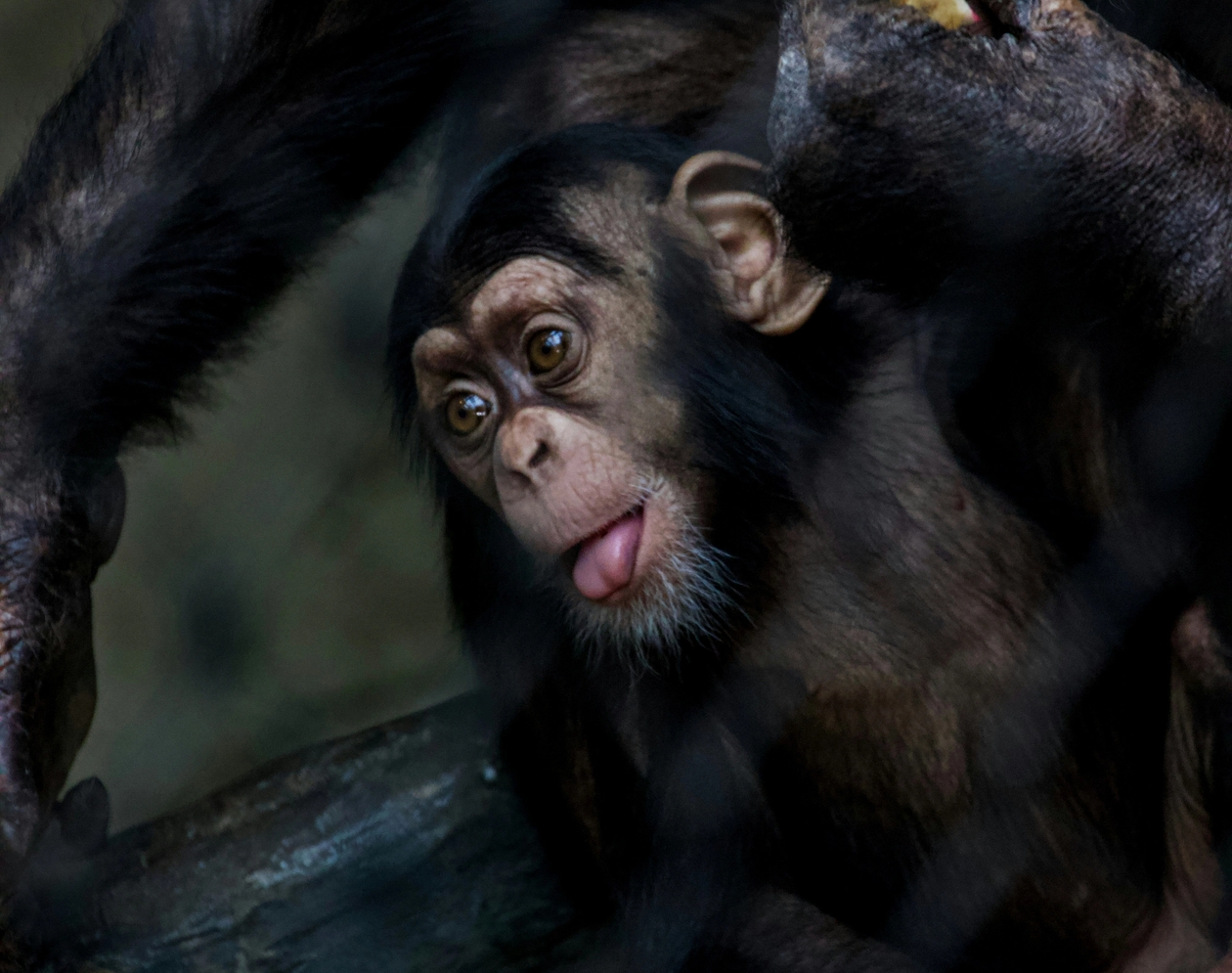
One of the most famous chimpanzees in history was Washoe, the first non-human to learn American Sign Language (ASL). Washoe learned over 350 signs to communicate with her human caregivers! She didn’t just mimic, she used the signs to express thoughts, emotions, and even teach new signs to other chimps.
Washoe once signed “hurt” and pointed to a tooth when she had a sore mouth, showing just how deeply chimps can connect with us when we speak the same language!
Want to try signing like Washoe? In British Sign Language (BSL), the sign for "monkey" is fun and easy to do:
How to sign "monkey":
Hold your hands up near your armpits and scratch under your arms like a chimp sitting in the trees! It’s a playful sign that looks just like how a monkey might move.
6. Social lives
Chimps live in tight-knit communities and follow rules, hierarchies, and even show teamwork when hunting or solving problems together. There’s often a “leader” chimp, but it’s not always the biggest, it might be the one with the best social skills!
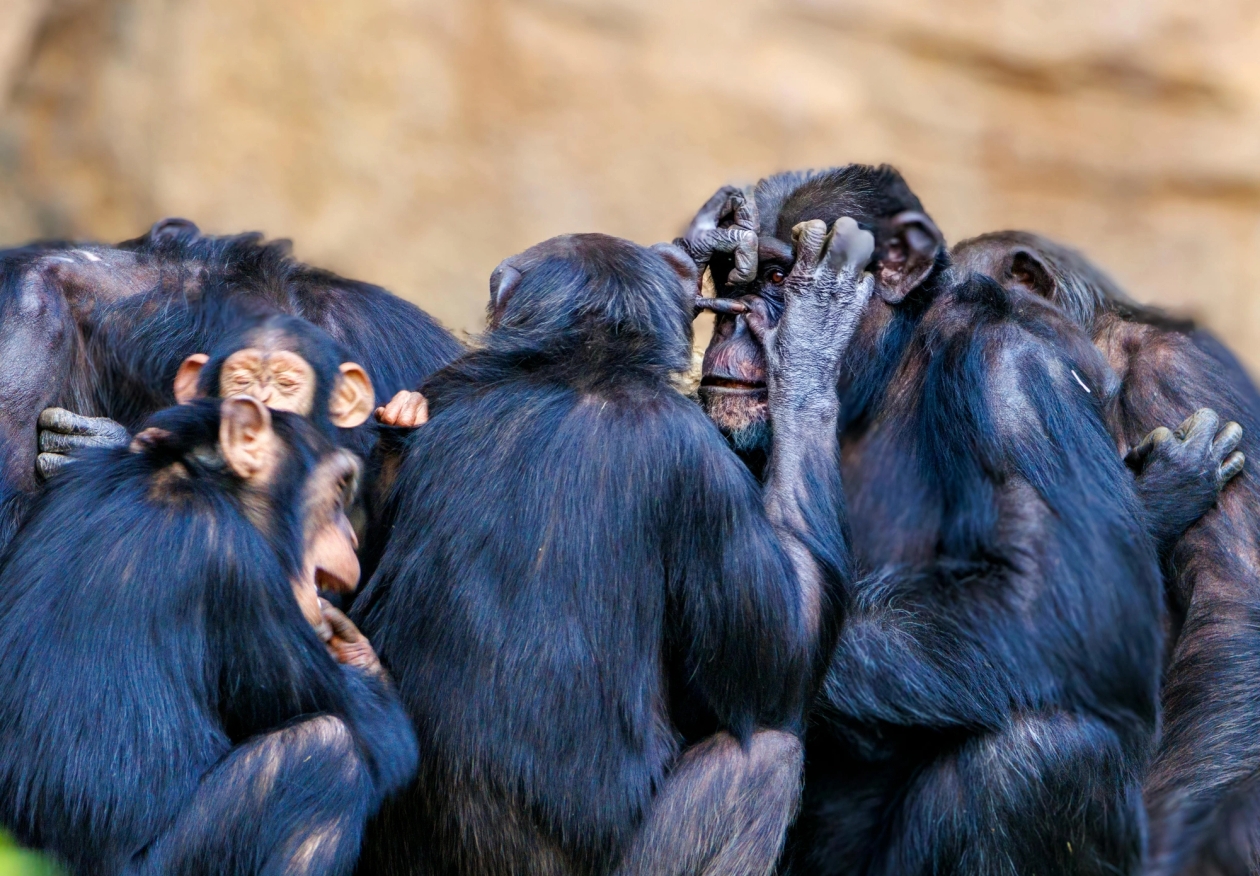
But chimps need our help!
Unfortunately, being so similar to us also makes chimps more vulnerable, and they face problems like:
- Losing their forest homes to logging and farming
- Catching human diseases, like flu or colds
- Being taken from the wild and sold illegally as pets
Luckily, amazing people around the world are working hard to protect them, and you’re part of that story too!
What WVS Is Doing to Help
We’re passionate about protecting animals, and we know you are too, that’s why you're here! Especially incredible species like chimpanzees. That’s why we recently sent veterinary care parcels to the Tacugama Chimpanzee Sanctuary in Sierra Leone.
Tacugama rescues and cares for chimpanzees who have been orphaned or injured, giving them a safe, loving place to live. Our parcels can help by providing vital supplies, like:
- Veterinary medicine
- Medical equipment
- Nutritional supplements
- Protective clothing for carers
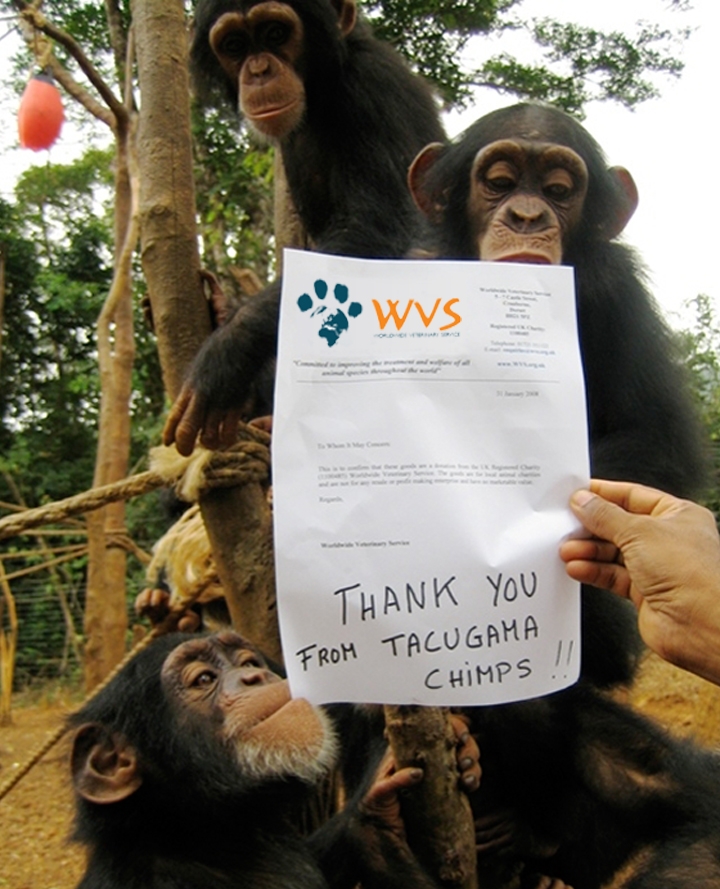
What Can YOU Do?
Even if you live far from the rainforest, you can still be a chimpanzee champion! Here’s how:
Learn and share: Talk about chimpanzees and their stories with friends and family. You can sponsor Valery the monkey with Young Vets Club and receive regular updates on what her friends have been up to!
Protect forests from home: Check labels for sustainable palm oil and support eco-friendly brands.
Support sanctuaries: Follow organisations like Tacugama to see the amazing work they do.
So, this World Chimpanzee Day, take a moment to celebrate our amazing wild cousins. They're not just like us; they remind us of the wild, intelligent, emotional side of nature. And they deserve our protection.






